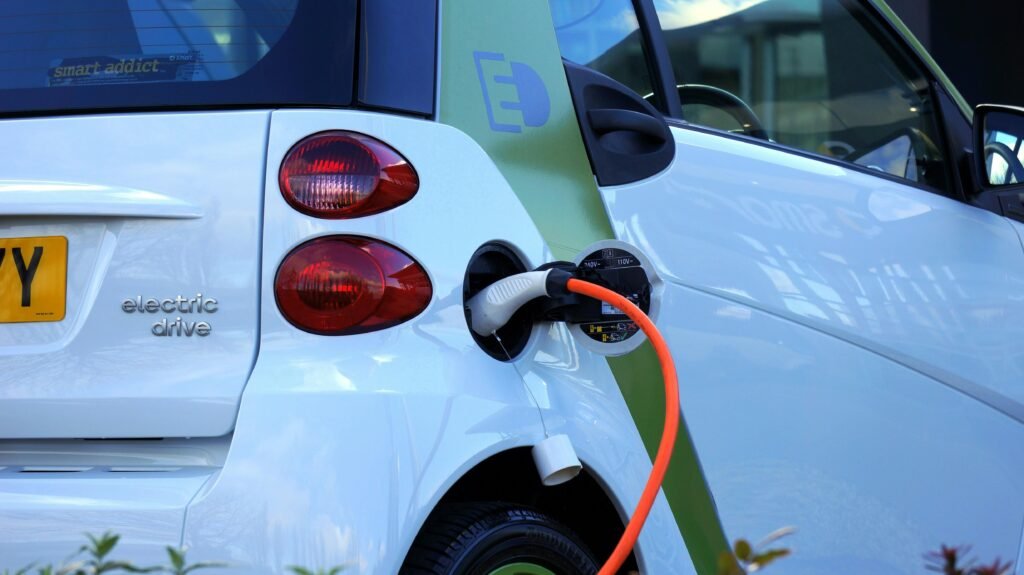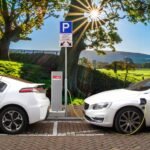The Rise of Electric Vehicles: How They’re Changing America’s Roads and Economy
Introduction: A New Era for Transportation
The way Americans get around is changing, and fast. Electric vehicles (EVs) are taking over the roads in ways we couldn’t have imagined a decade ago. From sleek, high-tech cars to affordable, eco-friendly models, the EV market is booming, and it’s having a massive impact not just on how we drive, but on the U.S. economy and the environment. In this article, we’ll dive into why EVs are becoming so popular and what that means for America’s future.
The Rapid Growth of Electric Vehicles
In the past decade, electric vehicles have gone from being a niche product to a mainstream option for many Americans. Between 2011 and 2021, EV sales in the U.S. grew by over 400%, with millions of people now choosing electric over gas-powered vehicles. Leading the charge are companies like Tesla, Rivian, and more traditional automakers like Ford and GM, who are quickly pivoting to produce electric models. The question is no longer if electric cars will take over, but when.
Why Are Americans Switching to EVs?
So, why are so many people making the switch to electric? For one, there’s the environment. With growing concerns over climate change and air pollution, many Americans are opting for cleaner alternatives to gas-guzzling cars. On top of that, the U.S. government has been offering tax incentives and rebates to encourage people to buy electric. Add in the fact that EV charging stations are becoming more widespread, and you’ve got a recipe for massive growth.
Environmental Benefits of Electric Vehicles
One of the biggest selling points of EVs is their positive impact on the environment. Unlike traditional cars, which emit carbon dioxide and other harmful pollutants, EVs run on electricity, producing zero tailpipe emissions. This shift is already helping to reduce greenhouse gas emissions, especially in large cities where air quality has been a growing concern.
The Economics of Going Electric
While electric vehicles can be more expensive upfront, they offer significant long-term savings. EV owners save hundreds, if not thousands, of dollars annually on fuel costs alone. Plus, electric motors have fewer moving parts than internal combustion engines, meaning less maintenance and repair. As battery technology continues to improve, the price of EVs is dropping, making them more affordable for the average consumer.
How Electric Vehicles Are Changing the Auto Industry
Electric vehicles are forcing traditional car manufacturers to rethink their business models. Companies like Ford and General Motors are investing billions in electric technology, hoping to catch up to early leaders like Tesla. These changes are leading to innovations in everything from battery technology to vehicle design, transforming the industry in ways not seen since the rise of the gasoline-powered car.

The Role of Tesla in the EV Revolution
When you think of electric cars, Tesla is probably the first name that comes to mind. The company, led by Elon Musk, has been a driving force behind the electric vehicle revolution. Tesla’s high-performance cars, innovative battery technology, and ambitious vision have pushed other automakers to accelerate their own EV plans, making Tesla a key player in this evolving market.
Challenges Facing Electric Vehicle Adoption
Despite all the progress, EVs still face some significant challenges. “Range anxiety” is a common concern among potential buyers. Although most EVs can travel hundreds of miles on a single charge, some people worry about running out of power, especially in rural areas where charging stations are less common. Additionally, the issue of battery disposal and recycling remains a challenge as the industry seeks more sustainable solutions.
The Infrastructure Challenge: Charging Stations Across America
For electric vehicles to become truly mainstream, the U.S. needs a robust network of charging stations. While major cities and highways now boast plenty of options, rural areas and smaller towns still lag behind. Fortunately, federal and state governments are investing in infrastructure projects aimed at expanding access to EV chargers, which will be key to accelerating adoption.
Electric Vehicles and the American Economy
The rise of electric vehicles is not just good news for the environment; it’s also creating new jobs and reshaping industries. From battery manufacturing to EV maintenance and charging infrastructure, thousands of new jobs are being created across the country. Moreover, EVs are having a ripple effect on the energy industry, prompting updates to the electric grid and increased investment in renewable energy sources.
The Future of Electric Vehicles: Autonomous Driving and Beyond
As if electric cars weren’t innovative enough, the future promises even more groundbreaking advancements. Autonomous driving technology, powered by artificial intelligence, is already being tested and could soon become a reality. Imagine a world where your car not only runs on clean energy but drives itself—this is the future that companies like Tesla, Google, and others are working toward.
How Electric Vehicles Are Impacting American Culture
Electric vehicles aren’t just changing the way we drive; they’re influencing American culture, too. From appearing in movies and TV shows to becoming a status symbol in certain communities, EVs are carving out a unique space in popular culture. The growing community of EV enthusiasts is also reshaping car culture, with car shows and meetups now featuring sleek, futuristic electric models.
Government Policies Shaping the Future of EVs
The U.S. government is playing a crucial role in shaping the future of electric vehicles. Federal incentives, such as tax credits for EV purchases, have helped boost sales. Meanwhile, state governments are implementing their own regulations and programs to promote EV adoption, including mandates for zero-emission vehicles and investments in charging infrastructure.
What to Expect in the Next 10 Years
Looking ahead, the future of electric vehicles is incredibly promising. Analysts predict that by 2030, electric vehicles could account for more than half of all car sales in the U.S. We can expect major advancements in battery technology, more affordable EV models, and a continued push toward autonomous driving.
Conclusion: A Cleaner, Greener Future for America
Electric vehicles are here to stay, and their impact on America’s roads, economy, and environment is just beginning. As more people make the switch to electric, the benefits will only continue to grow, paving the way for a cleaner, greener, and more sustainable future.
FAQs
- How long do electric vehicle batteries last?
- Most EV batteries are designed to last between 10 to 20 years, with warranties typically covering at least 8 years or 100,000 miles.
- Are electric vehicles cheaper to maintain?
- Yes, EVs generally have lower maintenance costs due to fewer moving parts and no need for oil changes.
- How far can electric vehicles travel on a single charge?
- Most modern EVs can travel between 200 to 400 miles on a single charge, depending on the model and driving conditions.
- Is it expensive to charge an electric vehicle?
- Charging an EV is usually cheaper than filling up a gas tank, especially if you charge at home during off-peak hours.
- Are there enough charging stations for electric vehicles in the U.S.?
- While the number of charging stations is growing rapidly, more infrastructure is needed, especially in rural areas.










